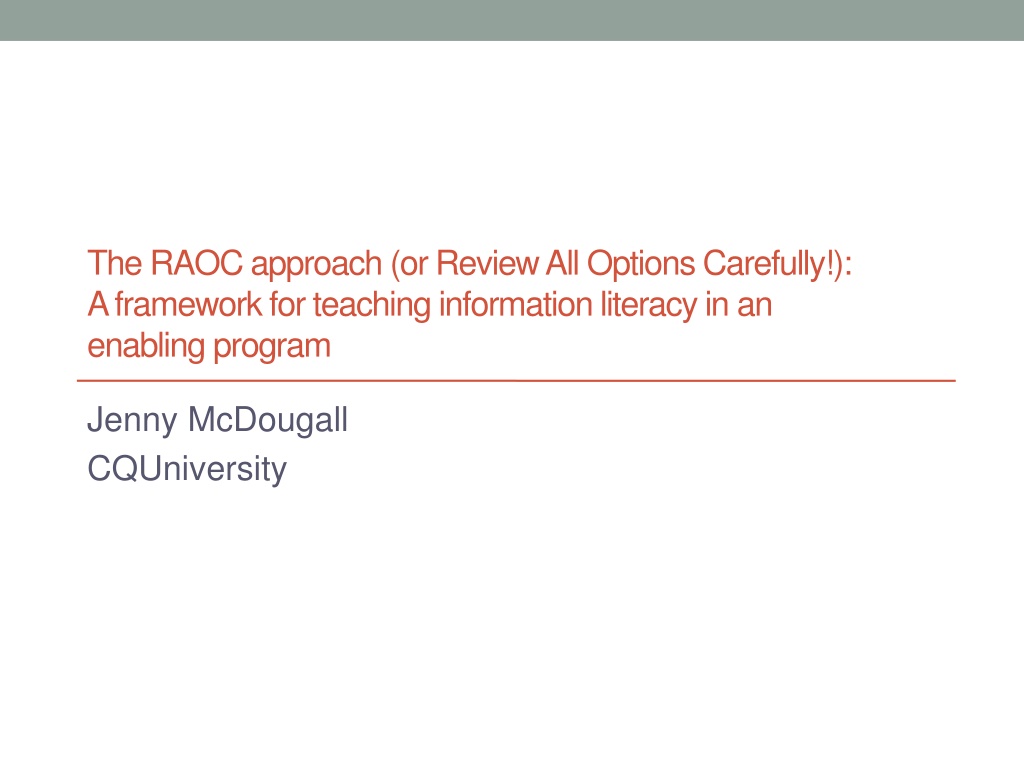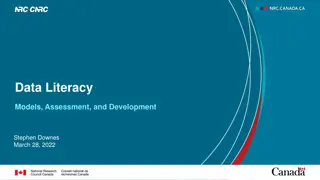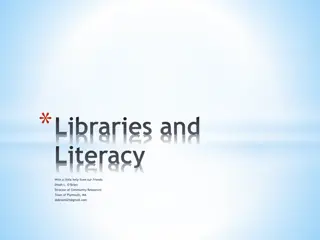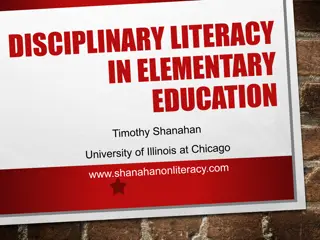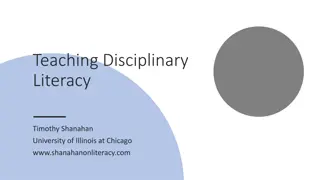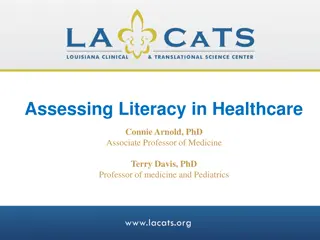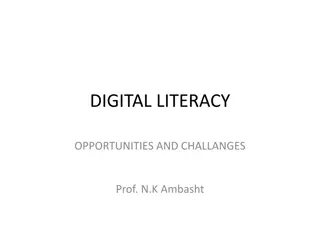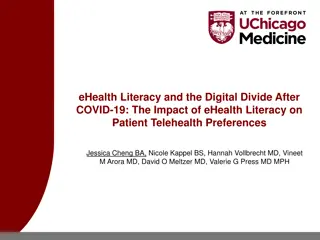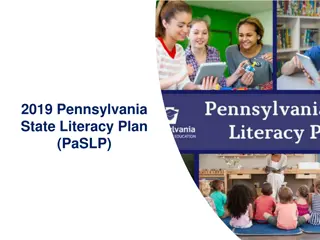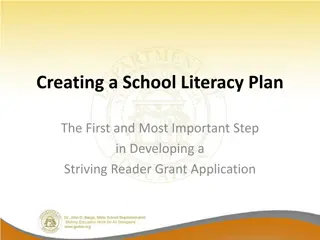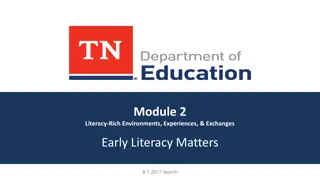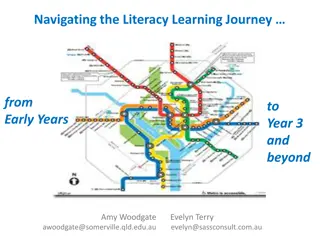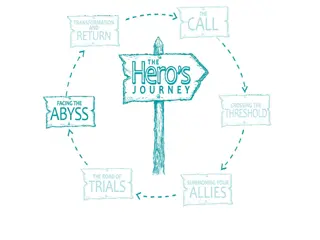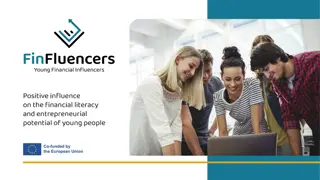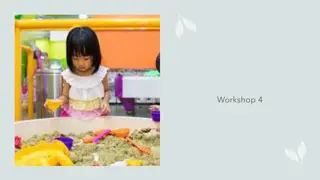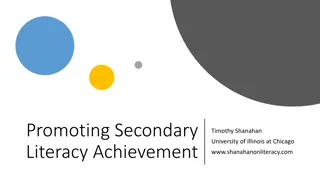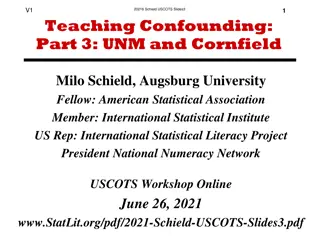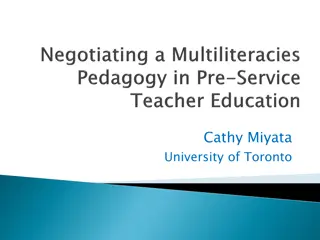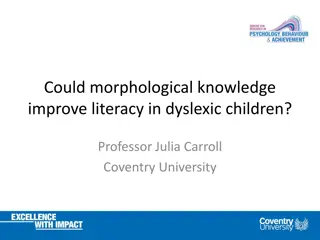Exploring Information Literacy in Educational Frameworks
Delve into the world of information literacy through the lens of educational frameworks, evaluation approaches, and critical literacy connections. Understand the significance of information literacy in today's digital age, its role in lifelong learning, and its impact on active citizenship. Discover how it is regarded as a basic human right and a vital skill for academic purposes.
Download Presentation

Please find below an Image/Link to download the presentation.
The content on the website is provided AS IS for your information and personal use only. It may not be sold, licensed, or shared on other websites without obtaining consent from the author. Download presentation by click this link. If you encounter any issues during the download, it is possible that the publisher has removed the file from their server.
E N D
Presentation Transcript
The RAOC approach (or Review All Options Carefully!): A framework for teaching information literacy in an enabling program Jenny McDougall CQUniversity
Today: A confession Information literacy and role of evaluation Approaches to teaching IL Links to critical literacy (Giroux) Frameworks for evaluating information The STEPS experience Conclusions and implications
Confession I am not a librarian.
What is information literacy? Association for College and Research Libraries (ACRL, 2015) a set of abilities requiring individuals to recognize when information is needed and have the ability to locate, evaluate, and use effectively the needed information"
What is information literacy? a set of abilities requiring individuals to (1) recognize when information is needed and have the ability to (2) locate, (3) evaluate, and (4) use effectively the needed information." (ACRL, 2015)
Information literacy Information literacy is a way of thinking rather than a set of skills. (Gibson, 2006, p. viii) information is abundant and intensive in post-industrial 21stcentury (Bundy, ANZIIL, 2004, p. 3) a subset of independent learning a subset of lifelong learning (Bundy, ANZIIL, 2004, p. 5) prerequisite for active citizenship (Australian Library and Information Association, 2001) contextual contingent on values and beliefs; discipline specific
Basic human right The Alexandria Proclamation of 2005: Information literacy and lifelong learning described as beacons of the Information Society, illuminating the course to development, prosperity and freedom It is a basic human right in a digital world and promotes social inclusion in all nations." (UNESCO, 2005)
Graduate Attribute for Enabling Students/ CQUni Graduate Attribute Information Literacy: Find, retrieve, evaluate and apply information for academic purposes.
Teaching IL Students find it hard! (Saunders, 2012) Need for a cross-discipline approach (Bundy, ANZIIL, 2004; Taylor & Dalal, 2014) Need for application to assessment (Bundy, ANZIIL, 2004) Adaptable and reusable online learning resources can assist (Salisbury et al., 2012)
Links with critical literacy Henri Giroux Critical pedagogy: role of critical thinking in individual (and social) transformation Need for collective communication and critical dialogue (1997, p. 27) Introduce students to different forms of communication and specific vocabularies Frameworks for evaluation = discourse of critique
Evaluating information evaluate reliability, validity, accuracy, authority, timeliness, and point of view or bias (ACRL, 2015) Commonly taught using checklists: series of concepts or questions Higher order thinking . . . as per Bloom s taxonomy
IL in STEPS (enabling program, CQU) COURSE Preparation Skills for University (core course) Essay Writing for University Annotated bibliography ASSESSMENT of IL Online quizzes Research essay Report Technical Writing for University
Evaluation frameworks in STEPS (2012-2014) PSU (ILUnit 1) PSU (ILUnit 4) EWU TWU IL Guide Author (authority) Site s sponsor/ publisher Purpose Accuracy Timeliness Suitability Uniqueness R elevance E xpertise V iewpoint I ntended audience E vidence W hen published Relevance Coverage Trustworthiness and authority Objectivity Currency Currency Reliability Coverage Accuracy Author credentials How was evidence collected? How reliable? Other evidence? Other interpretations? Anything overlooked? Other research to back up claims? (adapted from Zeegers et al., 2008)
RAOC framework (2015) .. . Relevance Authority Objectivity Currency
Is this information relevant to my research topic? Relevance What aspects of my topic does this information cover? Who has produced the information? Authority Where has the information been published? Does the information show the author has used research? Does the resource present a balanced view? Objectivity Is the information presented in a factual way? When was the information published? In the case of webpages, when was it last updated? Currency
Review All Options Carefully! Relevance Authority Objectivity Currency
The SMELL test John McManus, Mediashift (journalism education) Source Motivation Evidence Logic Left out
Relevance, Appropriateness, Details, Currency, Authority, Bias (RADCAB) Karen Christensson
Subject VIKO (Norwegian University of Science & Technology)
Limitations of checklist approach Checklists promote mechanical technique (Meola, 2004) Need to encourage students to go beyond Free Web
Changing nature of information Markahm Nolan (2012) How to separate fact and fiction online , TED talk . . . http://www.ted.com/talks/markham_nolan_how_to_separate_fact_and_fiction_online Changing nature of information Need to evaluate imagery, audio and videos More research freely available
Conclusions & Implications Teaching IL and how to evaluate information Shared responsibility Embed IL across the curriculum (& in assessment) beyond cattle dipping approach Give students language of critique e.g. RAOC Use consistent, accessible language; common resources Changing nature of information Need for evaluation
References Association of College and Research Libraries (ACRL). (2015). Information literacy competency standards for higher education. Retrieved from http://www.ala.org/acrl/standards/informationliteracycompetency Australian Library and Information Association. (2006). Statement on information literacy for all Australians. Retrieved from https://www.alia.org.au/about-alia/policies-standards-and- guidelines/statement-information-literacy-all-australians Bundy, A. (Ed.). (2004). Australian and New Zealand information literacy framework: Principles, standards and practice (2nd ed.). Adelaide, SA: Australian and New Zealand Institute for Information Literacy. Gibson, C. (2006). Student engagement and information literacy. Chicago, IL: American Library Association. Giroux, H. (1997). Pedagogy and politics of hope: Theory, culture, and schooling. Boulder, CO: Westview.
References (cont.) Meola, M. (2004). Chucking the checklist: A contextual approach to teaching undergraduates web-site evaluation . Libraries and the Academy, 4(3), 331 334. Salisbury, F.A., Karasmanis, S., Robertson, T., Corbin, J., & Hulel, H. (2012). Transforming information literacy conversations to enhance student learning: New curriculum dialogues. Journal of University Teaching & Learning Practice, 9(3). Retrieved from http://ro.uow.edu.au/jutlp/vol9/iss3/4/ Saunders, L. (2012). Faculty perspectives on information literacy as a student learning outcome. The Journal of Academic Librarianship, 38(4), 226 236.
References (cont.) Smale, M.A. (2013, February 13). Evaluating strategies for evaluating sources, Information Literacy at CUNY [Web blog post]. Retrieved July 1, 2015, from https://infolit.commons.gc.cuny.edu/2013/02/13/evaluating- strategies-for-evaluating-sources/ Taylor, A. & Dalal, H. A. (2014). Information literacy standards and the World Wide Web: Results from a student survey on evaluation of Internet information sources. Information Research, 19(4), paper 645. Retrieved from http://InformationR.net/ir/19-4/paper645.html UNESCO. (2003). The Prague Declaration Towards an Information Literate Society , Prague, Czech Republic. (20 23 September 2003). Retrieved from http://portal.unesco.org/ci/en/ev.php- URL_ID=19636&URL_DO=DO_TOPIC&URL_SECTION=201.html
